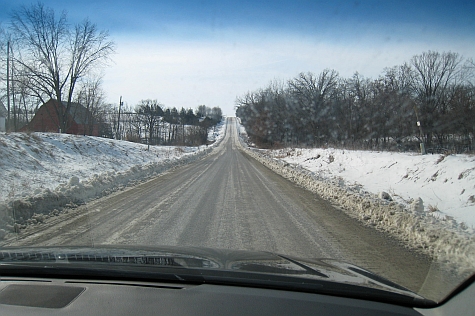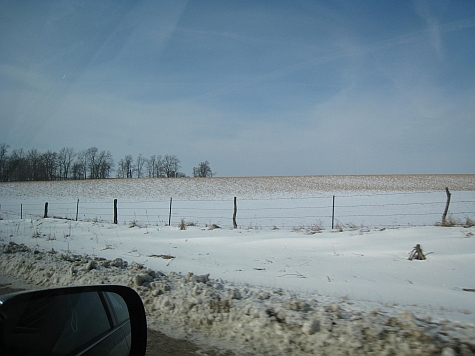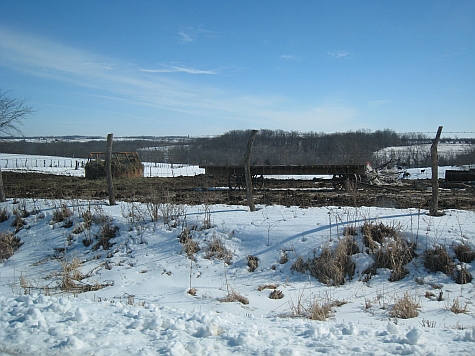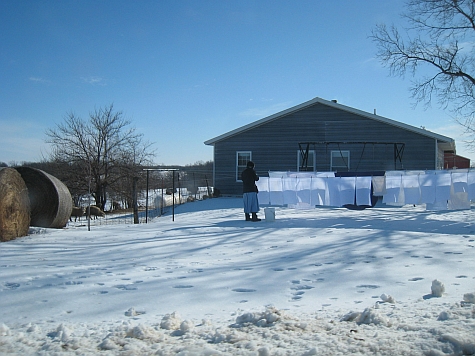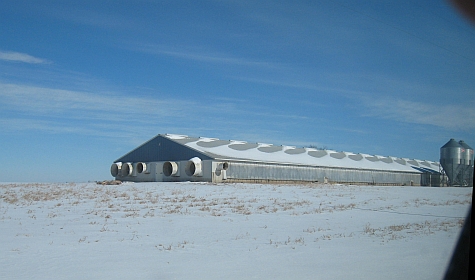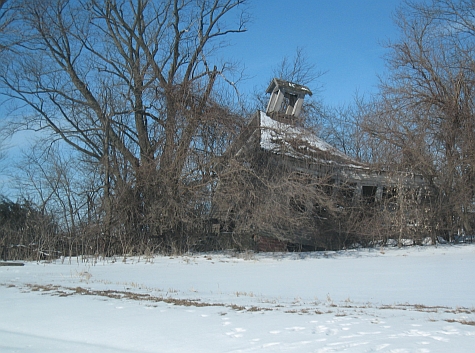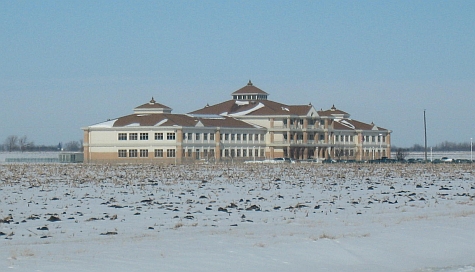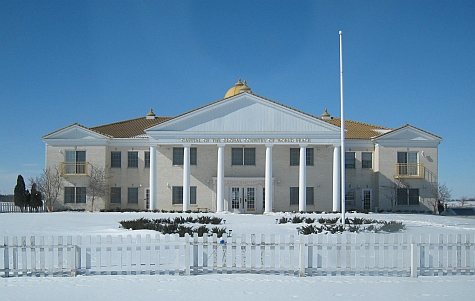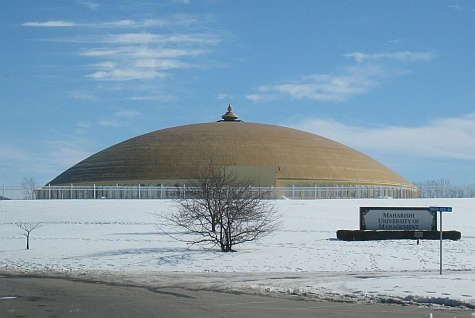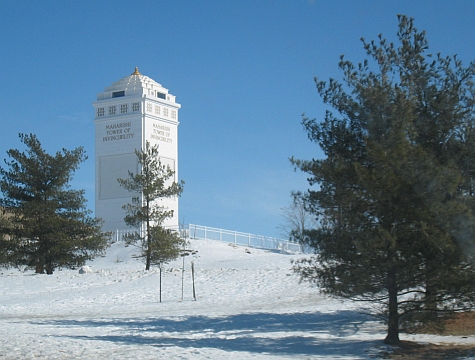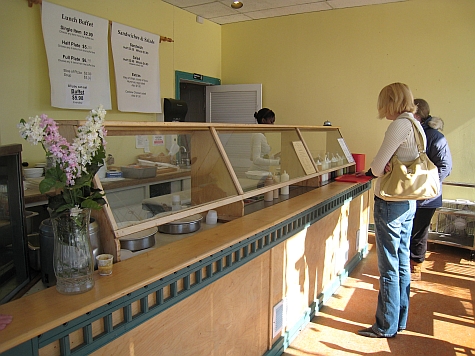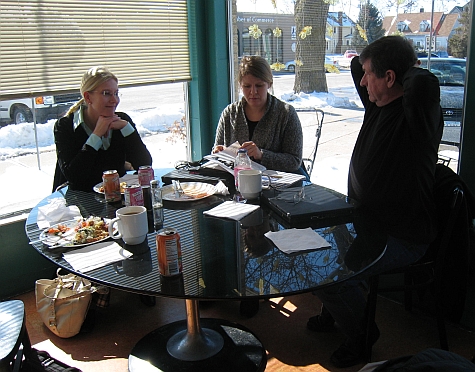There are certainly lots of open fields with fences around them.
In the area, there some Amish farms who continue to follow traditional methods of agriculture and living. This includes both high ground with a stream in the valley.
We waved hi to the woman putting out her laundry.
In contrast, an industrial pig farm is a longhouse with ventilation at both ends.
DLH drove us past an old school house, now dilapidated, where he first attended class as a child.
There are some non-agricultural businesses in the area. On the main road near town is Books Are Fun.
Northwest of Fairfield is Maharishi Vedic City, incorporated as its own municipality. We drove by Capital of the Global Country of World Peace.
Closer to town is the Maharishi University of Management, prominent with its dome.
A little further up the hill is the Maharishi Tower of Invincibility.
In town, the best place for lunch is supposed to be the Entree Cafe.
While we enjoyed the food, the cafe was also a destination for Internet access.
Part of doing research is breaking out of our traditional thinking to see the world in a different way. Seeing how people live in a rural area is a big change for us city-dwellers.

